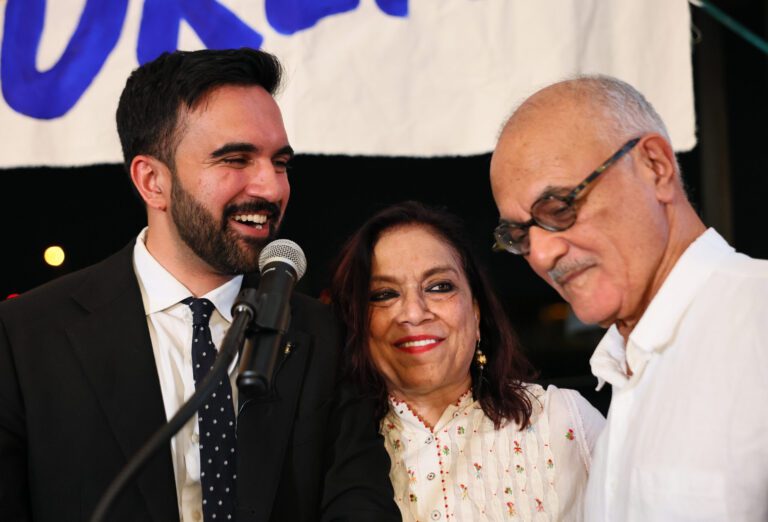The Mamdani Family: A Dual Narrative of Privilege and Power in Uganda and New York
Focus Keyword: Mamdani Family
Introduction
The Mamdani family, a name resonating with both privilege and power, sits perched on a hilltop in Buziga, Uganda, overlooking the bustling capital of Kampala. Known for their ties to Uganda’s elite and the emergence of Zohran Mamdani, a progressive politician in New York, this family embodies a complex narrative that intertwines wealth, politics, and societal disparities.
The Buziga Residence: A Fortress of Wealth
Nestled in a secure compound, the Mamdani residence is not just a home; it is a symbol of the elite’s distance from the struggles of the common Ugandan. Here are some key features of the estate:
- High Security: Armed guards patrol the property, a stark contrast to the surrounding poverty.
- Panoramic Views: The estate overlooks Lake Victoria, offering a picturesque yet aloof perspective on the city below.
Zohran Mamdani: A Rising Star in New York Politics
Zohran Mamdani, the son of Mahmood Mamdani, has gained notoriety in New York as a socialist and assemblyman. He champions:
- Working-Class Solidarity: Fighting against landlords and advocating for tenants’ rights.
- Political Purity: A carefully constructed narrative that distances him from his family’s wealth and connections.
Despite his progressive agenda, troubling questions arise regarding his family’s affluence and the socio-economic dynamics at play.
“The Mamdanis represent an incongruity; they denounce privilege in New York while embodying it in Uganda,” comments a political analyst.
Power Dynamics in Uganda: The Museveni Connection
In Uganda, where over 40% of the population lives on less than $2 a day, the Mamdani name evokes caution. The political landscape is deeply influenced by longstanding ruler President Yoweri Museveni, whose regime has lasted since 1986.
- Connections Matter: Many Ugandans fear that those with ties to Museveni are shielded from scrutiny.
- The Mystique of the Mamdanis: As perceived allies of the ruling elite, they often remain in the shadows of political discourse.
“If you see Mamdani, it’s like you’re with Museveni or his son,” notes a Kampala resident, reflecting the aura of fear surrounding their name.
Mahmood Mamdani: Scholar and Political Enigma
Mahmood Mamdani is a renowned academic whose career has spanned decades. Key points about his life include:
- Expulsions and Exile: Mamdani was expelled from Uganda in 1972 and faced citizenship issues in the 1980s.
- Academic Contributions: He served as dean at Makerere University and founded Uganda’s first independent research organization.
Despite his accomplishments, speculation persists regarding his political affiliations and whether he enjoys a formal role within Museveni’s circle.
Hidden Wealth: The Untouched Elite
While the Mamdani family maintains a low profile, speculation about their wealth and connections abounds:
- Business Interests: Rumors circulate about land holdings and partnerships with top Ugandan conglomerates like the Madhvani Group.
- Caution in Discourse: Many individuals refrain from discussing the family due to fear of repercussions from the regime.
“The Mamdanis are one of the families you don’t touch,” states a local community member, encapsulating the pervasive culture of intimidation.
Contradictions in Advocacy
Zohran Mamdani’s rise in New York as a champion of the working class raises inherent contradictions:
- Advocacy vs. Privilege: He calls for the dismantling of private wealth and power structures while descending from one of Uganda’s elite families.
- Unaddressed Connections: In speeches, he often overlooks the implications of his family’s influence and heritage.
“This silence raises questions: Can he genuinely challenge entrenched power while embodying it?” a political commentator argues.
Conclusion: The Story of Fear and Silence
The complexities surrounding the Mamdani family underscore a broader narrative of power, privilege, and societal inequities. From the opulence of their estate in Uganda to the progressive halls of New York, their story not only reflects personal dynamics but also highlights systemic issues within global socio-political structures.
- Fear Among Locals: The overarching sentiment is one of caution; speaking out could lead to severe consequences.
- The Role of Legacy: As Zohran claims to fight for justice and equity, the shadows of familial legacies remind us that privilege often complicates the fight for real change.
Through their juxtaposed existence in two vastly different political landscapes, the Mamdani family serves as a poignant symbol of power dynamics that resonate beyond borders.


